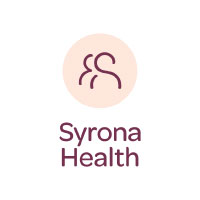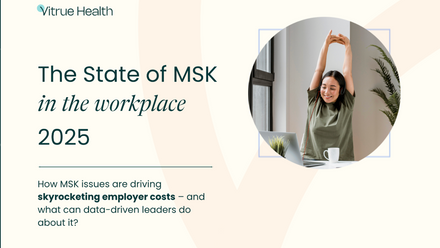Four ways you can support staff with gynaecological cancers
Often, when a loved one is diagnosed, family and close friends will offer support and educate themselves on the cancer. But support is also needed outside the home. If it isn’t already, now is the time to make support for staff with cancer a priority.

Gynaecological cancers start in a woman’s reproductive system and include ovarian, cervical, womb or uterine, vaginal, and vulval cancers. According to Cancer Research, uterine cancer (accounting for 9,700 new cases a day), ovarian cancer (7,500 cases) and cervical cancer (3,200 cases a day) are the most common, while vulval cancer (1,400 cases) and vaginal cancer (250) are considered rare.
Many gynae cancers are uncommon, so some people who are diagnosed will never meet another person with the same cancer type. This can be lonely and isolating. For many people, going to work can offer a sense of routine and normality. According to the National Library of Medicine, around half of those diagnosed with cancer will be of working age, yet many workplaces remain under-equipped to support staff during and after their cancer. So how can employers put plans into place to ensure robust support for employees with cancer, not forgetting the challenges surrounding gynae cancers?
1. Create a plan
Talking to your employees about their needs is a good place to start. Each person’s experience with cancer will be unique, and it’s important to avoid assumptions of what somebody wants or needs from an employer. Macmillan Cancer Support suggests you should be ready to make adjustments to workload and workplace and that this plan should be agreed on between you and your employee.
2. Consider gynae health
When most people think of cancer, they imagine chemotherapy treatments and gradual recovery. Yet cancer can impact several areas of your life, causing further physical or psychological health issues. Gynaecological cancer specifically bears a strong impact on women’s overall gynae health.
The link between cancer and menopause is one area that might not instantly spring to mind, but it’s an important one that effects lots of women and non-binary people. Studies have found that up 40% of women under the age of 40 may go into permanent menopause as a result of chemotherapy. Providing menopause support, then, is another branch of employee cancer support and one that is typically not covered in standard cancer benefits or even private medical insurance.
Fertility is another aspect often affected by gynae cancers and treatments. For many women, cancer treatment means they will not be able to conceive, which can have a tremendous emotional impact. Support needs to consider this, providing both fertility support and mental health help.
3. Mental health support
Mental health care almost always coincides with cancer support. Making talk therapy or cognitive behavioural therapy available for employees going through cancer is another way to personalise your cancer support offerings, going beyond the traditional protocol.
4. Exercise therapy and diet changes
Treatment for gynae cancers affect women on a day-to-day basis, causing fatigue, peripheral neuropathy (sensations of tingling, burning or numbness), hair and skin issues, and mental health problems. Exercise, such as a four-day a week walking programme for women with ovarian cancer, has been shown to improve these symptoms, according to a study by BMS Cancer.
Diet could also play a role in recovery. Higher vitamin E and indole-3-carbinol intake, as well as a Mediterranean diet, have all been proven to help, though these factors vary depending on the person and the type of cancer. Many women don’t receive this specialised information after a diagnosis. By providing access to specialists who can create diet and exercise plans, you’ll be going above and beyond as an employer.
A comprehensive cancer support programme for employees should be mindful of all the ways cancer can affect their lives.
The author is Emma Olsson
This article was provided by Syrona.
Supplied by REBA Associate Member, Syrona Health
Track your symptoms & lifestyle to get expert insights with SORA, your virtual health assistant







